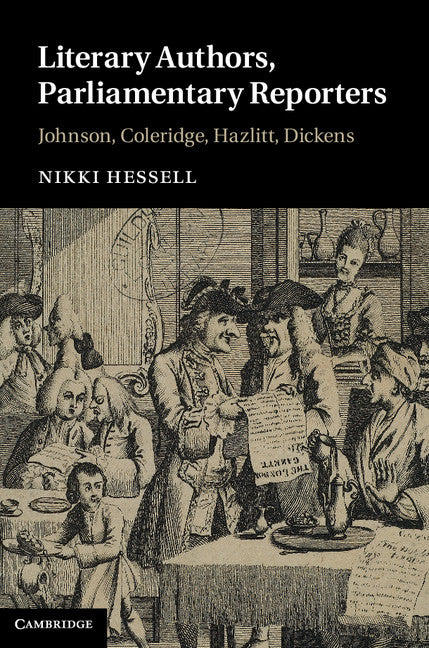Freshly Printed - allow 8 days lead
Couldn't load pickup availability
Literary Authors, Parliamentary Reporters
Johnson, Coleridge, Hazlitt, Dickens
A study of how Johnson, Coleridge, Hazlitt and Dickens used their experience of parliamentary journalism in their literary careers.
Nikki Hessell (Author)
9781107013575, Cambridge University Press
Hardback, published 10 November 2011
218 pages
23.5 x 16.1 x 1.7 cm, 0.49 kg
'… a useful contribution to recent interest in Dickens as journalist. Hessell's demand that parliamentary reports be re-assessed within their precise historical context and her marshalling of evidence to establish that context, have considerable value. Dickens Quarterly
Samuel Johnson, Samuel Taylor Coleridge, William Hazlitt and Charles Dickens all worked as parliamentary reporters, but their experiences in the press gallery have not received much scrutiny. Nikki Hessell's study is the first work to consider all four of these canonical writers as gallery reporters, providing a detailed picture of this intriguing episode in their careers. Hessell challenges preconceived notions about the role that emergent literary genius played in their success as reporters, arguing instead that they were consummate gallery professionals who adapted themselves to the journalistic standards of their day. That professional background fed in to their creative work in unexpected ways. By drawing on a wealth of evidence in letters, diaries and the press, this study provides fresh insights into the ways in which four great writers learnt the craft of journalism and brought those lessons to bear on their career as literary authors.
Preface
1. Introduction: reporting and the individual talent
2. Samuel Johnson: beyond Lilliput
3. Samuel Taylor Coleridge and the freedom of the gallery
4. William Hazlitt and the real eloquence of the British senate
5. Charles Dickens and the ghost of speeches past
6. Conclusion: taking parliamentary reporting seriously
Bibliography
Index.
Subject Areas: Press & journalism [KNTJ], Literary studies: c 1800 to c 1900 [DSBF], Literary studies: c 1500 to c 1800 [DSBD]


